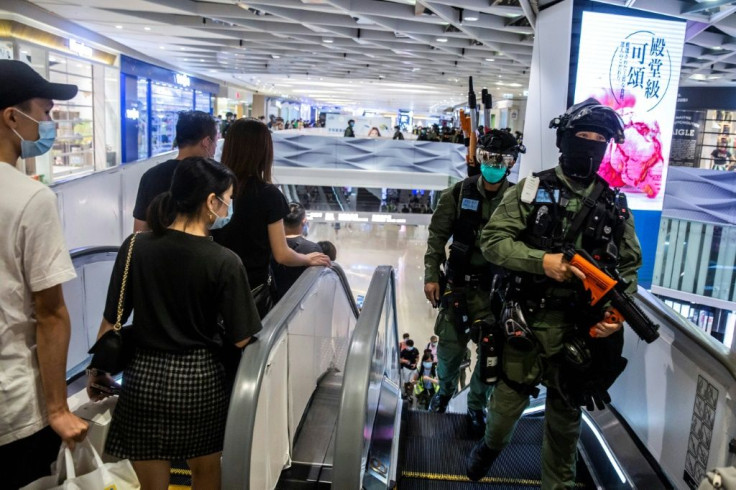China Warns UK It Will 'Fight Back' After Britain Suspends Hong Kong Extradition Deal

KEY POINTS
- The United Kingdom is following in the footsteps of the United States, Australia and Canada
- At the heart of the extradition treaty suspensions are the new National Security Law
- Most countries in the international community see China’s strategy as a way to gain control of the Special Administrative Region
The announcement by the United Kingdom to suspend its extradition treaty with Hong Kong prompted a harsh rebuke by China, who warned Beijing would fight back.
The U.K. is following in the footsteps of the United States, Australia and Canada who have already suspended their extradition arrangements with the former British colony following China's imposition of security law. Britain's announcement came Monday, July 20.
An unnamed spokesperson at the Chinese Embassy in London mentioned in a statement, "The UK will bear the consequences if it insists on going down the wrong road." The spokesperson added in the statement published in the embassy website that attempts to pressure China over the law are "…doomed to failure."
At the heart of the extradition treaty suspensions are the new National Security Law that recently went into effect in Hong Kong. The laws are seen by most in the international community as a strategy by China to gain control of what it calls a Special Administrative Region.
In 1997, Britain ceded control of Hong Kong after the end of a 99-year-old lease. The deal included an agreement to allow Hong Kong to continue as an autonomous state until 2047. It has been one of the world's most important trade and financial centers since the turnover with its guarantees of freedoms that include an independent judiciary. Britain feels the new laws will result in breaches of those guarantees.
"Extraditions between Hong Kong and the U.K. are extremely rare, so this is a symbolic gesture, but a very important one," Nick Vamos, a partner at London law firm Peters & Peters said, Al Jazeera reported.
Not so symbolic is the extension of an arms embargo announced by British Foreign Secretary Dominic Raab. He told parliament the extradition treaty suspension would be effective immediately and an arms embargo would also be extended to Hong Kong.
"We will not consider reactivating those arrangements, unless and until there are clear and robust safeguards, which are able to prevent extradition from the U.K. being misused under the new national security legislation," Raab said.
Beijing and pro-Chinese officials in Hong Kong defend the National Security Law saying they are a way to "plug gaps" in security weaknesses that were exposed by pro-democracy protests that began in June of 2019.
Details of the arms embargo that now targets Hong Kong include banning exports of weapons, ammunition and items used for internal repressions like shackles and smoke grenades.
Another move by the U.K. against the Communist giant was British Prime Minister Boris Johnson ordering equipment from China's Huawei Technologies to be removed from the country's 5G network by the end of 2027.
China, at risk of losing its status as a prime source of investment in British infrastructure, is resorting to a charge that it often uses with countries that are distancing their economies from the Communist regime -- accusing Britain of pandering to the U.S.
© Copyright IBTimes 2025. All rights reserved.





















